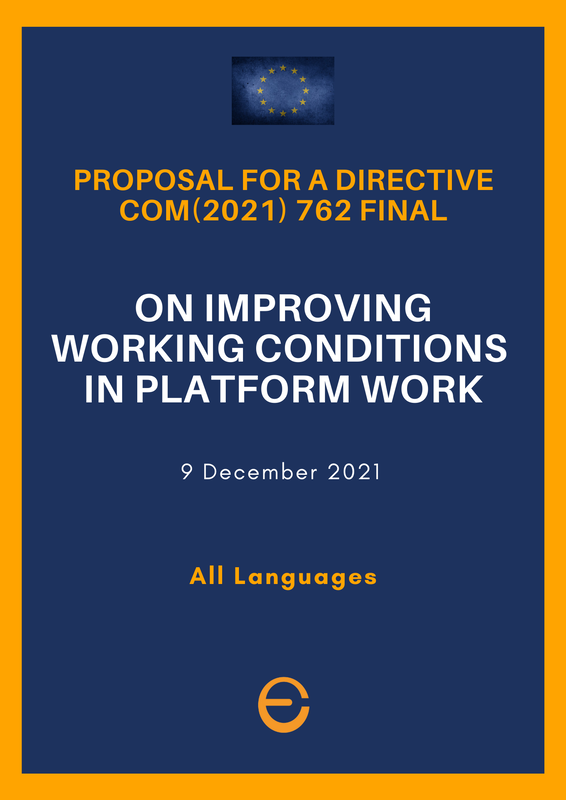EU SOCIAL PILLAR
Chapter II
Chapter II
5. Secure and adaptable employment
"Regardless of the type and duration of the employment relationship, workers have the right to fair and equal treatment regarding working conditions, access to social protection and training. The transition towards open-ended forms of employment shall be fostered.
In accordance with legislation and collective agreements, the necessary flexibility for employers to adapt swiftly to changes in the economic context shall be ensured.
Innovative forms of work that ensure quality working conditions shall be fostered. Entrepreneurship and self-employment shall be encouraged. Occupational mobility shall be facilitated.
Employment relationships that lead to precarious working conditions shall be prevented, including by prohibiting abuse of atypical contracts. Any probation period should be of reasonable duration".
In accordance with legislation and collective agreements, the necessary flexibility for employers to adapt swiftly to changes in the economic context shall be ensured.
Innovative forms of work that ensure quality working conditions shall be fostered. Entrepreneurship and self-employment shall be encouraged. Occupational mobility shall be facilitated.
Employment relationships that lead to precarious working conditions shall be prevented, including by prohibiting abuse of atypical contracts. Any probation period should be of reasonable duration".


